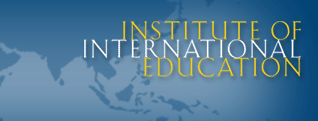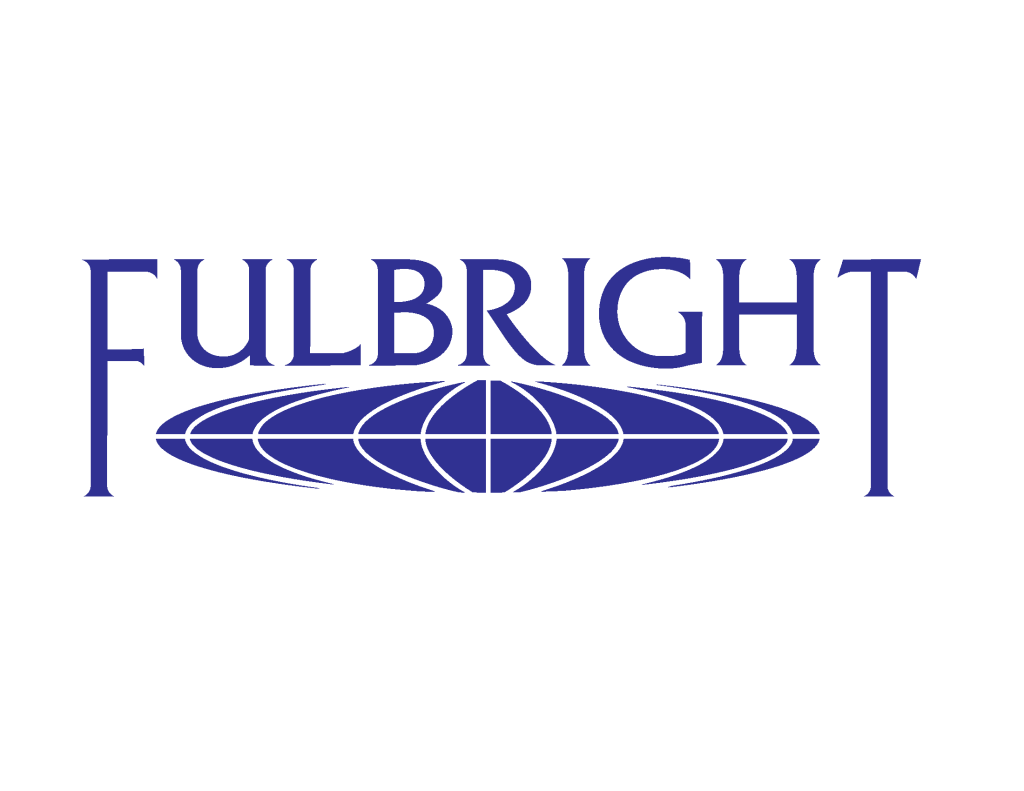I’m excited to share this post of tips for those dreaming of a Fulbright award – but I’m especially excited that our secret guest author is going to answer your specific, personal questions also! Read on for details!
I am here to answer all your burning questions about the Fulbright IIE study abroad program and to encourage you to apply! A former Fulbright Program Advisor with 15-years experience, I am grateful to Melibee for giving me this opportunity to share information about the amazing Fulbright program.
Me…win a Fulbright?!?!
The Fulbright’s website is a great place to start. There is a lot of information about the program and application on the site, and it can be a little daunting. Please don’t be discouraged though! Below I will answer five-commonly asked questions about the Fulbright application, and….I will be taking questions to help you complete your application and win a Fulbright!
Yes, you! As long as you’re a US citizen with a BA!
 The Fulbright Program is funded by the Institute of International Education. Its stated mission is to “advance international education and access to education worldwide.” The Fulbright Program accomplishes this by providing study-abroad opportunities to students and those with at least a BA degree interested in international exchange, and is open to US citizens who wish to study abroad, and non-U.S. citizens who wish to study in the United States. I will address often asked questions about the program for US citizens who want to study abroad.
The Fulbright Program is funded by the Institute of International Education. Its stated mission is to “advance international education and access to education worldwide.” The Fulbright Program accomplishes this by providing study-abroad opportunities to students and those with at least a BA degree interested in international exchange, and is open to US citizens who wish to study abroad, and non-U.S. citizens who wish to study in the United States. I will address often asked questions about the program for US citizens who want to study abroad.
But…I’m not a US citizen! And I want to apply for a Fulbright!!!
Non-US citizens can learn more about opportunites to study at a participating college or university in the United States through the Fulbright Foreign Student Program.
The Deadline
The Fulbright deadline is Tuesday, October 13, 2015, for the 2016-2017 competition (yes, you read that right!). If you are a currently-enrolled college or graduate student, please check with your school about the date of the internal deadline (this may be as early as September, when you return to school, or possibly even earlier for college seniors). Everyone else applies directly to Fulbright for the October 13th deadline. All of this is to say, it’s never too early to think about Fulbright! And if you haven’t started your application yet, you still have time until the deadline.
Application Requirements
There are different types of Fulbright grants, for example teaching English in a school, or country-specific opportunities. Most Fulbright awards are for “study/research grants.” This grant requires a two-page project statement, one-page personal statement, three letters of recommendation, foreign-language evaluation, and transcripts. Ideally, your application should also include a letter of affiliation. If you are a creative- or performing-arts applicant, please check the guidelines for specific additional materials which you are allowed to submit, found here.
Top questions and tips about the Fulbright application from someone who knows:
Can I apply to more than one country? What country should I apply to?
The rule of thumb is one country, one application. It is not possible to submit an application to Mexico, for example, and another application for Russia. One country, one application. However, there are a few exceptions: it is sometimes possible to make a proposal for several smaller countries within the same region. Please check the Fulbright website by region (see link below) to see if there is an exception available for the countries you want. It is also possible to call IIE and talk to the representative for each world region with specific questions. Generally, feasibility — how likely you are to accomplish the project you propose — is a factor in selection, and multi-country projects, unless they are meticulously planned out, are often viewed as less feasible than a one-country proposal. Here is the link to the country list.
One country, one application. Feasibility is important.
Dreams come true
Some applicants know exactly what country they want to apply to — it has always been their dream and they know it is the best place to accomplish their project. So even if your dream country has a lot of applicants and the odds are longer — that is still where you should apply. Passion carries the day — make sure it is in your project and personal statements!
Dreams come true, but I’m not sure in which hemisphere.
Sometimes applicants have projects that can be accomplished in a number of countries, so they must select the best one. One suggestion would be to select the country where the applicant has a secure letter of affiliation. A letter of affiliation is a confirmation or invitation that you will have a specific base in that country. It can be a science lab, an academic who will be your contact, a theater, a library, an NGO, an art studio…it can be anything related to your project. Its importance is that if you are giving specifics in your application (for example, I will have access to certain archives) and your letter of affiliation will validate that. It can come in the form of an email which you can scan and upload, and Fulbright reserves the right to ask for an official paper letter at a later date.
Another suggestion: if you don’t have your heart set on one particular country, check statistics from previous years — some countries are very popular (particularly English-speaking ones) — so consider countries that haven’t received many applications in the past. Statistics can be found here.
How important is the foreign-language evaluation? Who should fill it out?
Applicants should look at the language requirements for the country they are applying to — and each country has its own requirement. The language requirement is listed under each individual country. The level of foreign language should be appropriate for carrying out the proposed project. Most countries where a language is spoken that is commonly taught in American schools (French, Spanish) will expect a higher level of language competency. If your language skills are good and need improvement, you can indicate on the supplemental form your plans to continue and enhance your language study during the 2015-16 academic year. This plan can include taking classes, private lessons, language exchange, participation in cultural events, reading, on-line study…anything you can add to demonstrate that you are continuing and improving upon your language skills.
Fluency is not a requirement! And you still have one whole year to improve your language skills!
Your project may be in a non-English speaking country but can be accomplished in English; or the country you are applying to does not require prior knowledge of that country’s language (for example, Norway or Lithuania). In the spirit of Fulbright and international exchange, it is always good to learn a little of the local language prior to arrival. Your application may not require the foreign-language evaluation form, but if you plan on preparing for departure by studying the basics of the language and a few civilities, you should certainly indicate your language-acquisition intention in your application, on the supplemental language form.
Easy.
If you have taken a foreign language in college recently, the foreign-language evaluation form should be filled out by your instructor.
Still easy. But don’t ask your mom to fill out the form.
If you know a foreign language because it is spoken at home, you still need to have the form filled out — this is how the evaluating committee knows that you know the language, even if it is obvious to you. If you are a student, ask at the academic department for that language: during Fulbright season, there is usually a professor assigned to meet with students, evaluate their skills, check the boxes, and submit the form. For commonly-taught languages, it is best if an instructor can fill it out (it’s okay if they are a Teaching Assistant, Adjunct, or graduate student).
Still still easy. You can ask a mom to fill out the form (but not your own mom).
For less-commonly taught languages, you may have to search around for an instructor who would be able to fill it out. If you have a private tutor or teacher, it is fine if they fill it out. It there is no other option you may ask a native speaker of a less commonly taught language to fill out the form. They can list their occupation, even if it is not in education.
But, but…I’m applying to an English-speaking country!
A foreign-language evaluation is not required for English-speaking countries, as long as your project is in English. If, for example, you propose going to an English-speaking country to interview a non-English speaking population or individual in that country, or your project involves reading texts available in that country that are not in English, you should provide either the foreign-language evaluation or fill out the additional language preparation statement. That way, no one has to guess whether you have the necessary language skills for your project.
For example: if you plan on going to England to examine medieval texts written in Latin and Middle English, you should demonstrate that you have the necessary reading skills in medieval Latin and Middle English.
I am not currently enrolled in school, but I have my BA and would like to apply for a Fulbright. Am I allowed?
YES! Please apply!
The biggest difference between applying as a current student and applying as an “At-Large” candidate is that enrolled students must apply through their college and university (and usually have an earlier deadline). The reason for this is that the college provides a Fulbright Program Evaluation along with the application, confirming that the project is supported and feasible. This is not a disadvantage to At-Large applicants, applying directly to Fulbright. Statistically, either by design or not, Fulbright has done about 50-50, meaning 50% of recipients have come through their college or university, and 50% have come At-Large. (Check with your Alma Mater — some will include alums in their batch of applications, or will at least provide access to the Fulbright Program Advisor in that school, who would be able to answer specific questions).
There is no age limit for Fulbright — I’ve met applicants of all ages, and have seen all ages win. This includes senior citizens. Fulbright does not (and cannot) discriminate based on age.
But don’t take my word for it!
From the Fulbright website:
The Fulbright Grants described on this website are subject to the Civil Rights Act of 1964 and the Americans with Disabilities Act of 1990, which provide that no citizen of the United States may, on the grounds of race, sex, color, religion, age, national origin, or disability, be excluded from participation in, be denied the benefits of, or be subjected to discrimination under any program or activity receiving federal financial assistance.
I heard that Fulbright won’t consider applicants who have spent time abroad or in the country they are applying to — is this true?
If all things were exactly equal between two applications, Fulbright would give priority to the applicant who has less travel experience. There are certain travel experiences however that Fulbright does not hold against an applicant. These include: undergraduate study abroad; language-learning acquisition; vacation; doing preparatory work in a country in advance of an extended stay; unrelated project work. Some countries will not consider applicants who are residing in that country the year previous to the grant. Here is information about eligibility.
I’m a US citizen, but wasn’t born in the US…
Fulbright will not disqualify you if you were born in a country outside of the US, spent your childhood there, immigrated to the US, and are now applying for a Fulbright to that country to work on a specific project. In terms of experience abroad, Fulbright is less likely to support your project if you are currently in that country working on the exact same project, or wanting to return to a country to continue the exact same work.
The bottom line is: Fulbright wants the best representatives to send abroad with the best projects, the best likelihood of completing those projects, and fulfilling the Fulbright mission. A Fulbrighter is for life!
Letters of recommendation — who should I ask? Also, I may be able to get a letter of recommendation from Professor Superstar — should I try?
The most important part of a letter of recommendation is that the recommender is willing to speak specifically about your Fulbright project (in addition to saying how great you are and how you will be an asset to the program!).
MAJOR TIP ALERT! The best way to get a recommender to address your project in your letter of recommendation is to give or attach a copy of your project (even if your project statement is not complete; even if it is in outline form) to the recommender when you make your request for a letter of recommendation — that way s/he can refer directly to it while writing your letter of recommendation.
A recommender can be anyone you know through your studies, your project or your professional life. Again the most important part is that they are willing to write about you in relation to your project, the strengths of the project, the qualities you bring to it, and the success of your project’s realization in your capable hands.
This also applies to the Professor Superstar question. Is the recommender willing to write specifically about you and your project? If a lesser “name” is willing to write a stellar letter, that may be to your advantage. Please keep in mind that once the applications are at Fulbright, the committees to evaluate them are formed based on country of application, and not necessarily field. So if Professor Superstar’s stardom is specific to your field, the name may not mean as much to an evaluator outside of your field.
Got Fulbright questions???
I know that there are many other questions out there — and I know because I’ve answered them all in the past! From now until October 10th (with the exception of two weeks in August, when I will be travelling abroad!), I will answer your questions in the comments below. The questions can be general, or specific to your project. Your very own Fulbright expert, all for reading the Melibee blog!! People win Fulbrights — and nothing would make us happier than to have Melibee website readers among them!
 About our Secret Guest Author: “Cosmic-K” spent 15 plus years as a Fulbright Program Advisor at an ivy-league university. She currently edits for Melibee, writes, and walks her dog when she is not traveling (or reading or dreaming about traveling). She may or may not be related to Melibee’s founder. Pummel her with Fulbright questions via the comments because she is a firstborn child and knows EVERYTHING! 😉 (We mean it – she’ll answer your Fulbright questions below!)
About our Secret Guest Author: “Cosmic-K” spent 15 plus years as a Fulbright Program Advisor at an ivy-league university. She currently edits for Melibee, writes, and walks her dog when she is not traveling (or reading or dreaming about traveling). She may or may not be related to Melibee’s founder. Pummel her with Fulbright questions via the comments because she is a firstborn child and knows EVERYTHING! 😉 (We mean it – she’ll answer your Fulbright questions below!)

